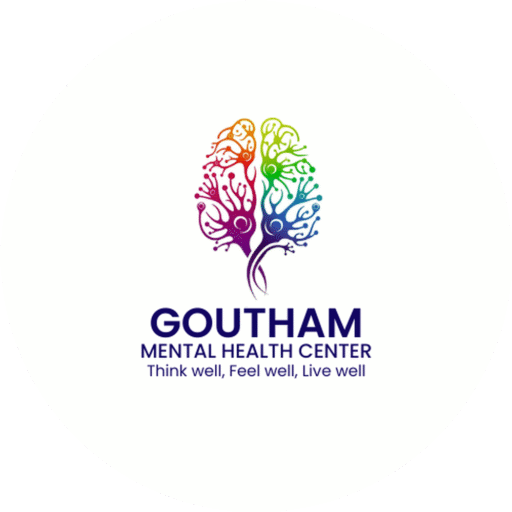Recently, headlines around the world have been buzzing with claims that Tylenol (acetaminophen, known in India as paracetamol) during pregnancy may cause autism. These claims, made by former U.S. President Donald Trump and echoed by the White House, have left many pregnant women anxious — especially since paracetamol is one of the most commonly used medicines for pain and fever.
But what does the science actually say? And how should this information be understood in the Indian context?
The Political Claim
Donald Trump recently declared:
“Don’t take Tylenol. Fight like hell not to take it.”
The White House published a document titled “FACT: Evidence Suggests Link Between Acetaminophen and Autism.” At the same time, the U.S. Food and Drug Administration (FDA) has begun reviewing acetaminophen labels to include a possible association between prenatal use and conditions such as autism or ADHD.
This strong rhetoric has created widespread alarm.

What Researchers and Experts Say
The scientific community’s response has been more cautious and nuanced.
- World Health Organization (WHO): Stated that there is “currently no conclusive evidence confirming a link between acetaminophen and autism.”
- American College of Obstetricians and Gynecologists (ACOG): Affirms that acetaminophen remains the analgesic and antipyretic of choice in pregnancy when used at the lowest effective dose and for the shortest time necessary.
- European Medicines Agency (EMA): Confirmed that its guidance remains unchanged — paracetamol is safe when used appropriately.
- Swedish Cohort Study (JAMA Pediatrics, 2024; ~2.4 million births): Found no increased risk of autism or ADHD among children whose mothers used acetaminophen during pregnancy, once genetic and environmental confounders were considered.
- Mount Sinai & Harvard Studies (2021–2023): Suggested possible associations between prenatal acetaminophen exposure and later ADHD/autism diagnoses, but emphasized the limitations of observational design.
- Nature Commentary (2025): Warned that focusing on acetaminophen as a “cause” of autism distracts from the condition’s multifactorial origins (genetics, prenatal health, environment).
The key message: some associations exist in observational studies, but none prove causation.

Association ≠ Causation
One of the first lessons in epidemiology is that correlation does not equal causation.
- Autism diagnoses have risen worldwide due to improved awareness and better diagnostic systems.
- Paracetamol use in pregnancy is common, making it easy to appear linked.
- But rising together does not mean one causes the other.
A classic example: ice cream sales and drowning incidents both rise in summer. They are associated because of a third factor (hot weather), not because one causes the other.

The Role of Confounders
Confounders are hidden variables that create false links between two factors.
- Pregnant women often take paracetamol to treat fever.
- Fever itself may influence fetal neurodevelopment.
- Without adjusting for fever, it may look like paracetamol is responsible when the real risk is the underlying illness.
This is why robust studies (like the Swedish sibling-controlled design) are so important — they help untangle such confounding effects.

The Indian Perspective
Since Tylenol is a U.S. brand (Johnson & Johnson), the Indian equivalent is paracetamol, available as Crocin, Calpol, Dolo-650, Metacin, etc.
Here’s what Indian experts are saying:
- Dr. Soumya Swaminathan (ex-WHO Chief Scientist, India): “There is no proven scientific evidence. Paracetamol is safe when prescribed by doctors. There is no need to panic.”
- Delhi obstetricians (Times of India, 2025): Warn women not to abruptly stop paracetamol if prescribed, and emphasize that untreated fever can harm both mother and baby.
What This Means for Pregnant Women
Paracetamol remains the safest option for pain and fever during pregnancy, when prescribed.
Untreated fever or infection can be more harmful to mother and child than the medicine itself.
Avoid self-medication and always consult your obstetrician before taking any drug.
Political speeches and headlines are not medical advice.

Final Takeaway
The Tylenol debate highlights how politics can outpace science. While U.S. leaders amplify preliminary studies, the medical community — including WHO, ACOG, EMA, and Indian experts — stresses that there is no conclusive evidence of causation.
Until stronger, replicated research proves otherwise, the safest approach is clear:
👉 Use paracetamol only when needed, at the lowest effective dose, under medical guidance.
References / Further Reading
WHO Statement on acetaminophen and autism (Sep 2025)
ACOG News Release: Acetaminophen remains safe in pregnancy (Sep 2025)
FDA Press Announcement: Reviewing label update for acetaminophen (Sep 2025)
Nature News Commentary: Careless and damaging talk about autism (Sep 2025)
JAMA Pediatrics (2024): Acetaminophen Use During Pregnancy and Risk of Autism, Sweden cohort (~2.4M births)
Mount Sinai & Harvard studies on prenatal acetaminophen exposure (2021–2023)
NDTV Interview with Dr. Soumya Swaminathan (Sep 2025)
Times of India: Delhi doctors urge calm over Tylenol claims (Sep 2025)
DISCLAIMER – This blog is for awareness and educational purposes only. It is not medical advice. Always consult your doctor before starting or stopping any medicine during pregnancy.



